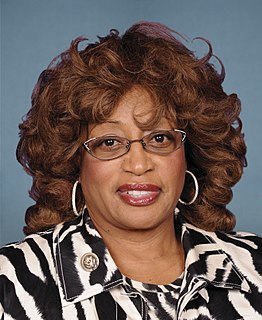A Quote by Heather Cox Richardson
Since the Brown v. Board of Education decision of 1954, Movement Conservatives have tapped into the idea that an activist government redistributed wealth to lazy minorities. But they have also pushed hard on the idea that true Americans are Western individualists.
Related Quotes
In the 1960s, Movement Conservatives created a cast of villains. The Brown v. Board decision in 1954 and President Eisenhower's use of troops to desegregate Little Rock Central High School in 1957 enabled Movement Conservatives to resurrect old white fears that government activism was simply a way to funnel white tax dollars to African-Americans.
The hardest problems of all in law enforcement are those involving a conflict of law and local customs. History has recorded many occasions when the moral sense of a nation produced judicial decisions, such as the 1954 decision in Brown v. Board of Education, which required difficult local adjustments.
The whole privatisation of health and education, of natural resources and essential infrastructure - all of this is so twisted and so antithetical to anything that would place the interests of human beings or the environment at the center of what ought to be a government concern - should stop. The amassing of unfettered wealth of individuals and corporations should stop. The inheritance of rich people's wealth by their children should stop. The expropriators should have their wealth expropriated and redistributed.
Activist Supreme Courts are not new. The Dred Scott decision in 1856, imposing slavery in free territories; the Plessy decision in 1896, imposing segregation on a private railroad company; the Korematsu decision in 1944, upholding Franklin Roosevelt’s internment of American citizens, mostly Japanese Americans; and the Roe decision in 1973, imposing abortion on the entire nation; are examples of the consequences of activist Courts and justices.
Within the model minority rhetoric, Asian Americans are represented as “good” minorities and African Americans are represented as “bad” minorities. Here, the achievements of Asian Americans are used to discipline African Americans. As model minorities, Asian Americans achieved the status of “honorary Whites”. Again it is important to point out that the honorary whiteness of Asian Americans was granted at the expense of Blacks. It is also significant that as “honorary Whites,” Asian Americans do not have the actual privileges associated with “real” whiteness.
[To the cultures of Asia and the continent of Africa] it is the Western impact which has stirred up the winds of change and set the processes of modernization in motion. Education brought not only the idea of equality but also another belief which we used to take for granted in the West-the idea of progress, the idea that science and technology can be used to better human conditions. In ancient society, men tended to believe themselves fortunate if tomorrow was not worse than today and anyway, there was little they could do about it.




































